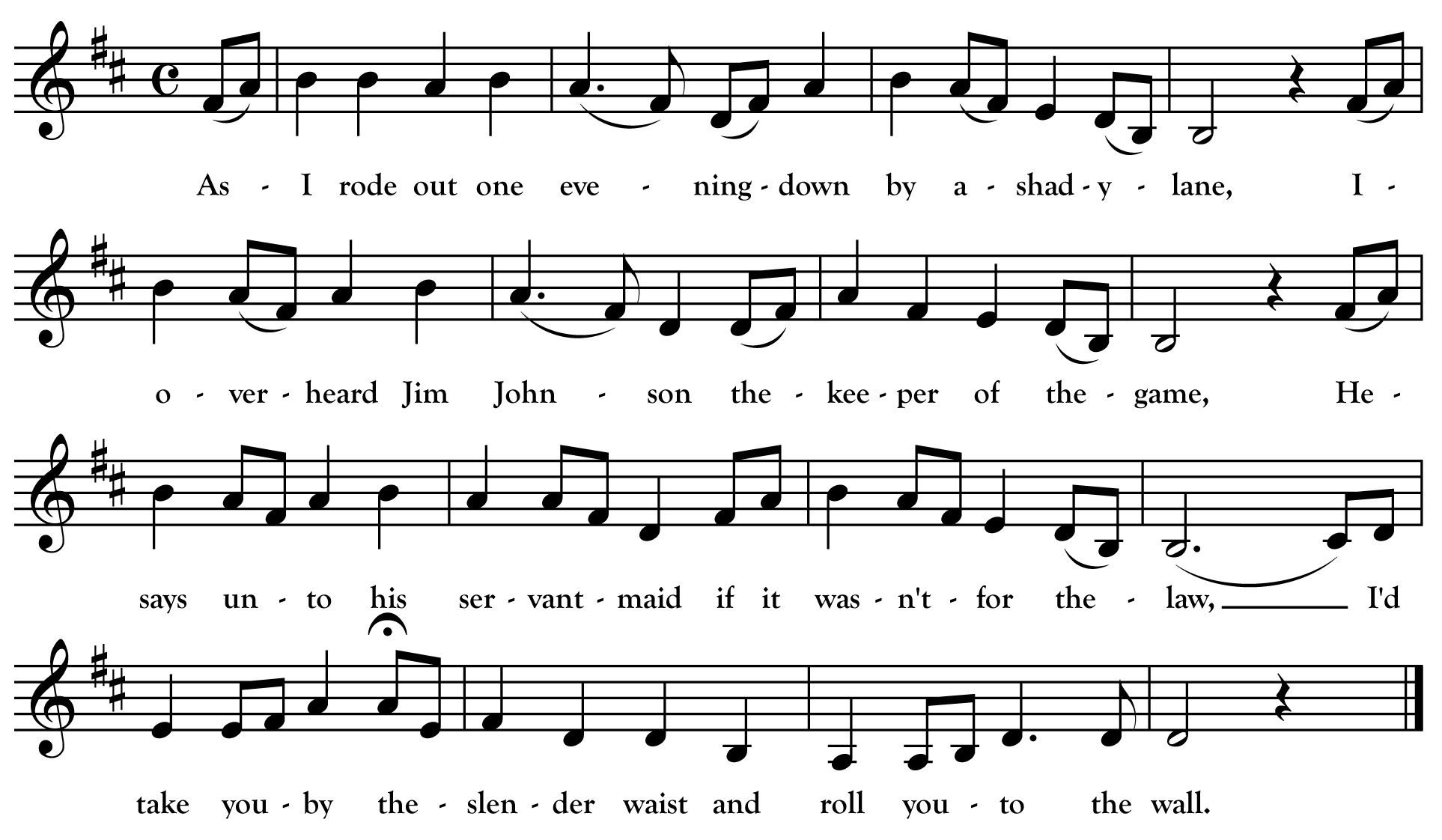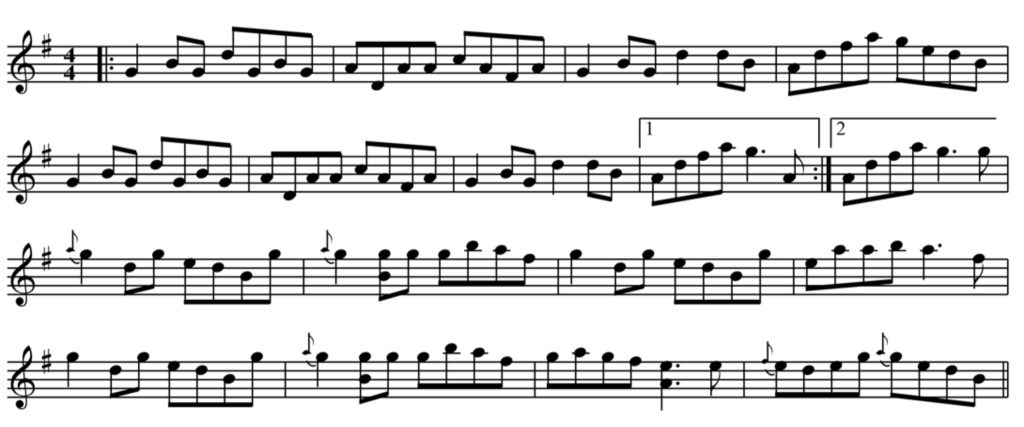The County Tyrone

My parents oft times told me, they never could control me,
That a weaver they would make me if I’d stay at home,
But I took another notion of a higher promotion,
To try other countries as well as Tyrone.
When I came to Newry, it was there I fell a-courting,
A charming young girl for a wife of-a my own,
But when I came to view her she would not endure me,
For oft times she told me I was married at home.
Continually weaving I spent that whole season,
Oh thinking my true love, she would change her mind,
When at last I contracted, she instantly asked me,
“Kind sir, your character?” from the County Tyrone.
It is for my character you need never ask me,
For married or promised I never was to no’one,
She swore by her conscience that she would run all chances,
And travel along with me to the County Tyrone.
Oh early next morning, as the day was a-dawning,
We took a short ramble down by the mile stone,
A guard did pursue us, but they could not come to us,
I was wishing in my heart I had her in Tyrone.
With great toil and trouble our course we did double,
We met an old man that was walking alone,
He told them where he met us and where they would get us,
And that we were still talking of the County Tyrone
The canal it was near us where vessels were lying,
I jumped onto one and my case I made known,
They threw a plank to us, and on shipboard they drew us,
And told us the vessel was bound for Tyrone.
Now I am landed in my own native country,
And in spite of her parents I’ve got her at home,
Now my song for to finish she’s my love Jenny Innes,
And I’m bold McGuinness from the County Tyrone.
Beaver Island, Michigan singer John W. Green (1871-1964) learned “The County Tyrone” from his uncle (probably Peter O’Donnell, another singer born on the island). Song collector Ivan Walton recalls the night he, his son Lynn, islander Dominick Gallagher and collector Alan Lomax commenced their recording session with Green in August 1938 this way: “Lomax, Dominick Gallagher, Lynn and I and some beer drove out to John Green’s and found him quite talkative. We set up the recording machine and didn’t take it down until about 1 a.m.” My transcription of Green singing “The County Tyrone” for Lomax’s recording machine is above. The recording is accessible here on the loc.gov site.
Green’s is the only version of this song collected in North America. It is known in the north of Ireland and appears in Sam Henry’s Songs of the People as well as in the repertoires of Robert Cinnamond, Joe Holmes, Brian Mullen and others. The sweet melody, internal rhyming and detailed story of a successful elopement make it a song worth singing!


